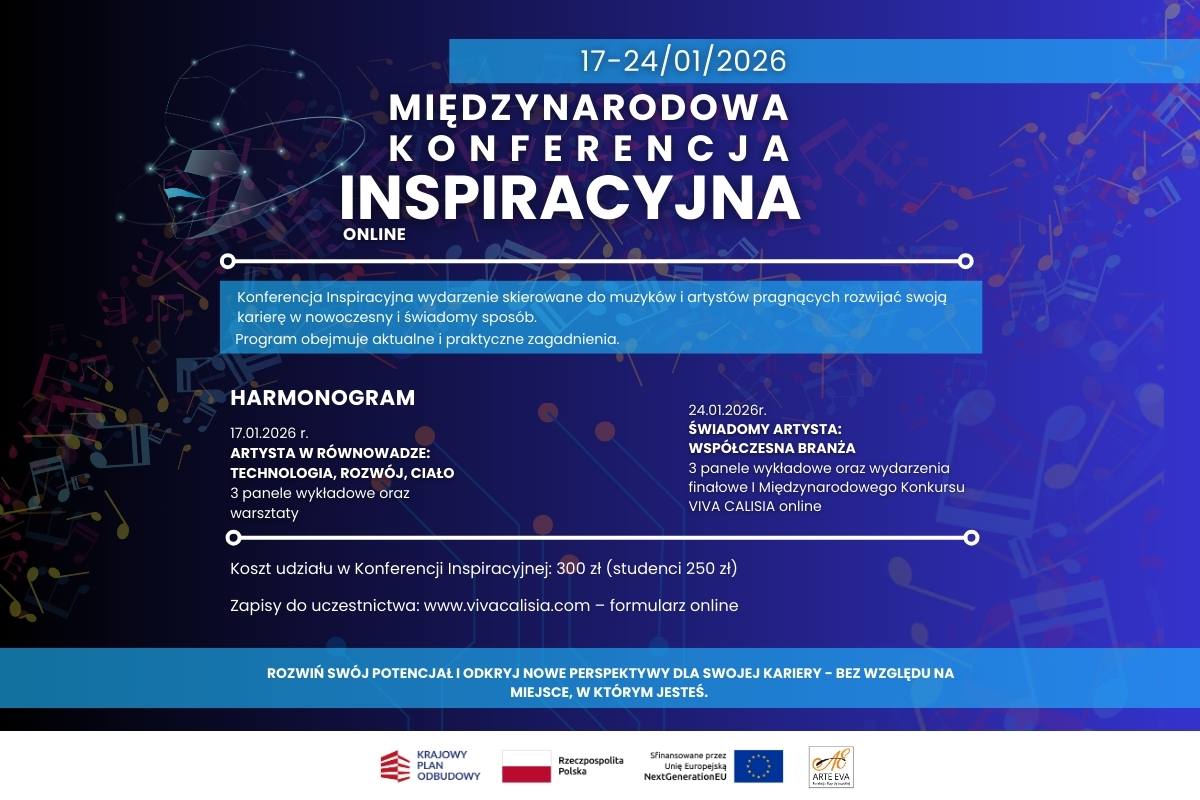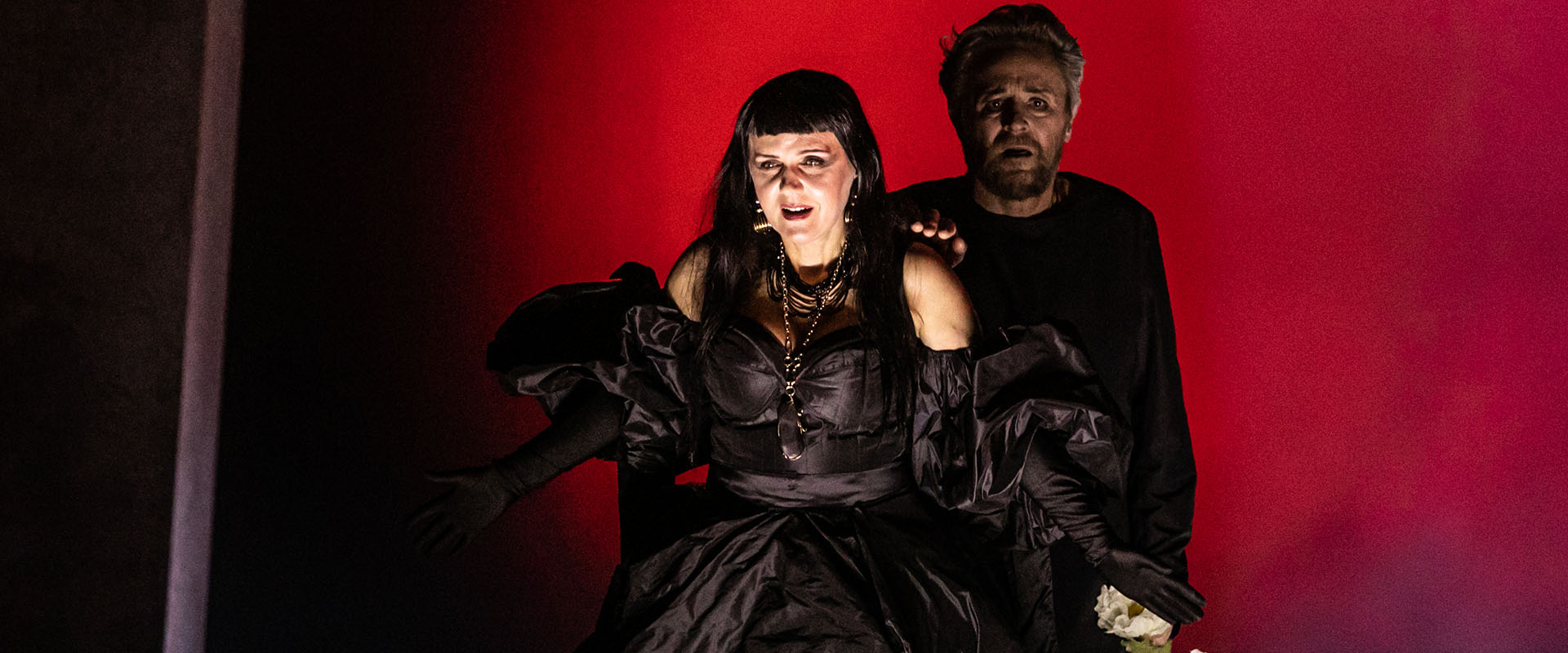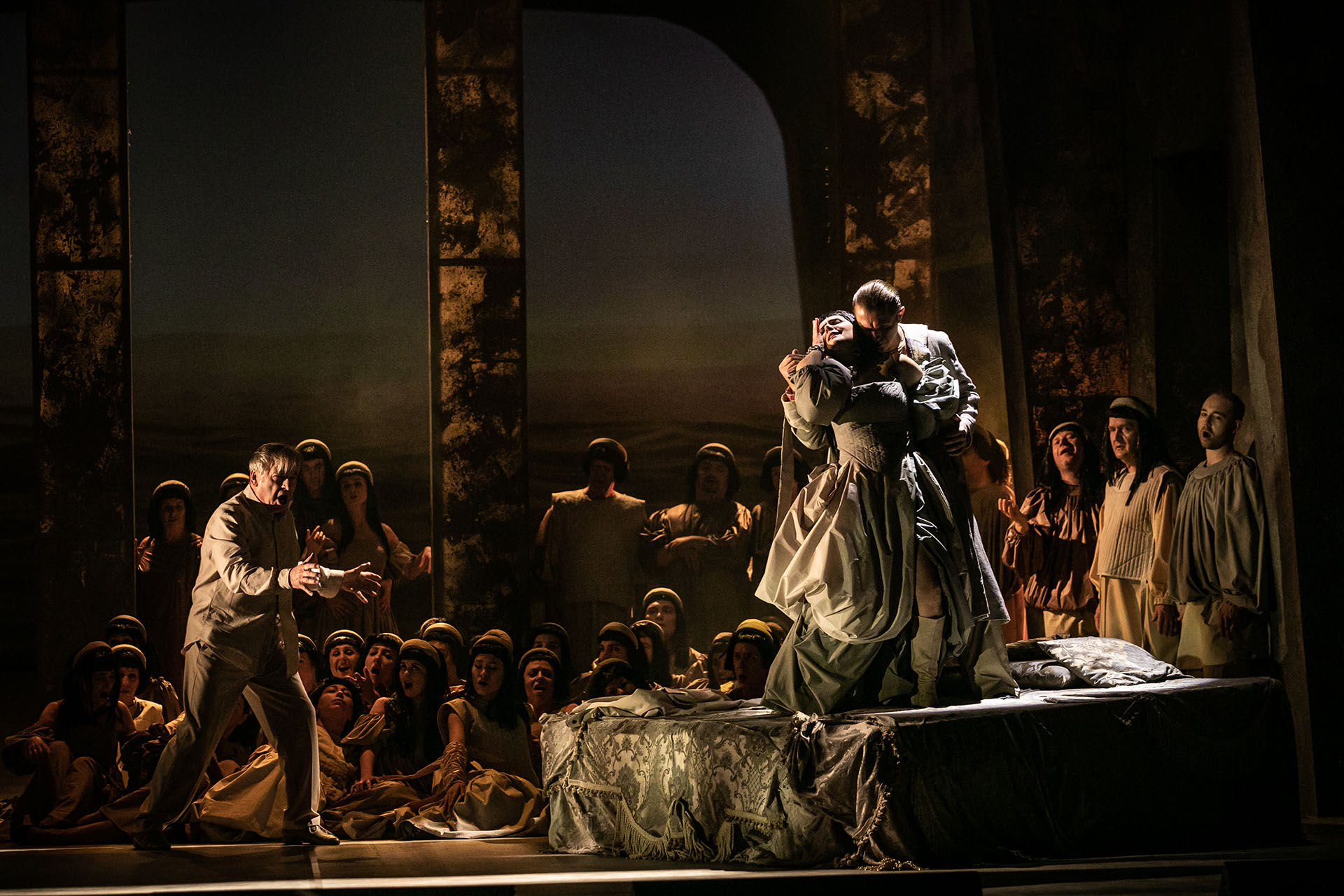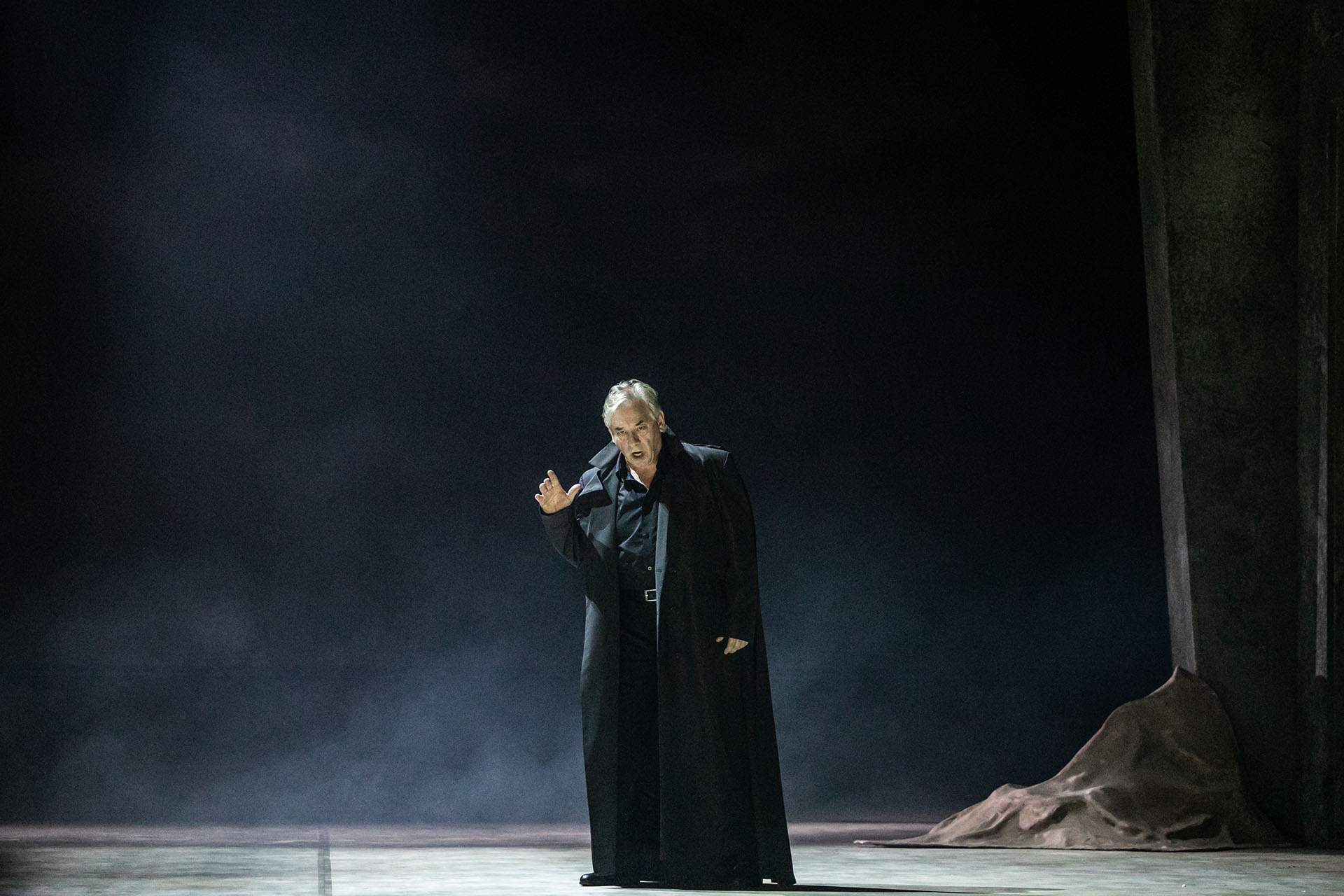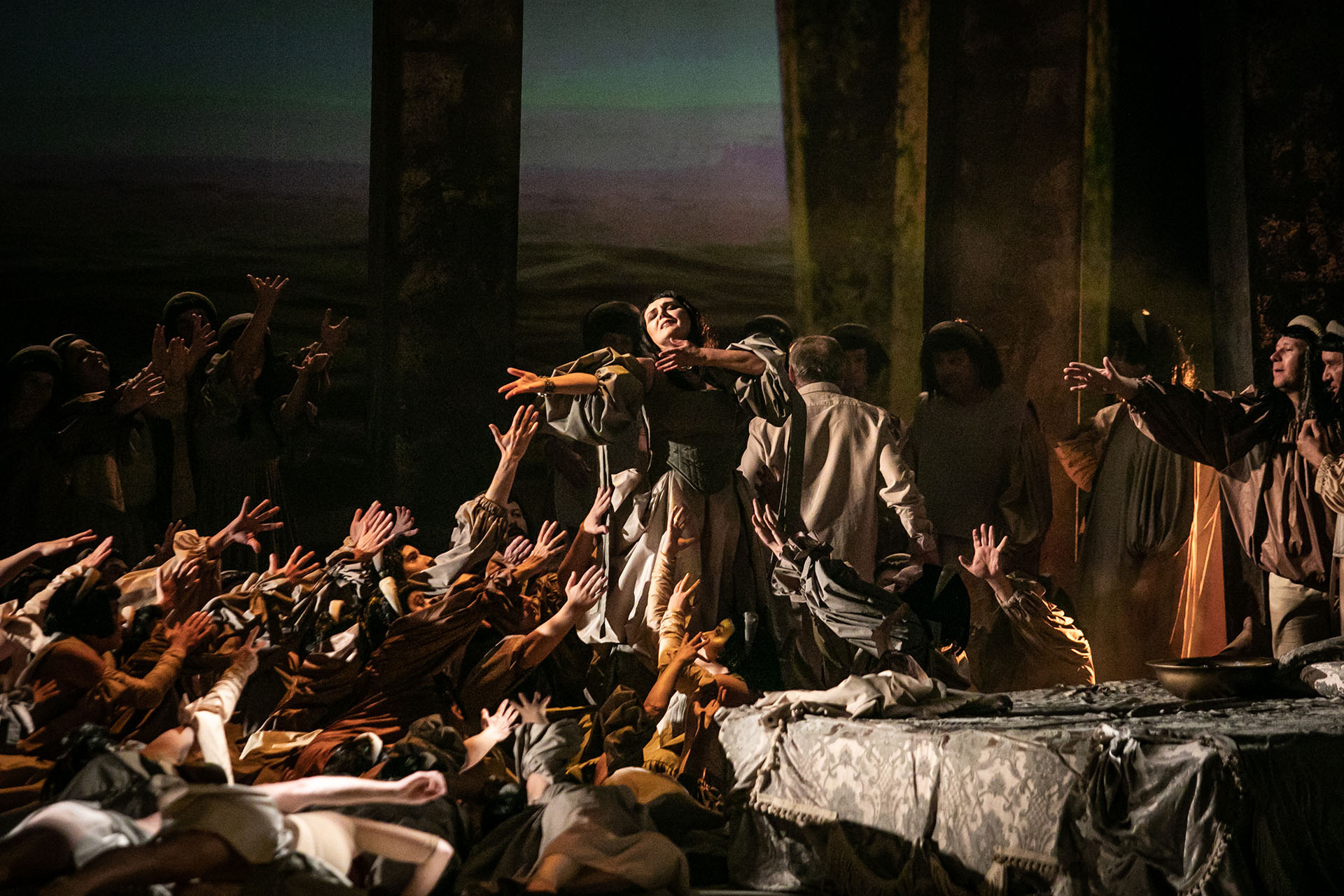 “King Roger” by Karol Szymanowski: A Polish-Ukrainian Dream of Sicily
“King Roger” by Karol Szymanowski: A Polish-Ukrainian Dream of Sicily
For those unfamiliar with the history behind one of Poland’s most internationally renowned operas, its Ukrainian roots may come as a surprise. This makes it all the more relevant to revisit its origins ahead of the upcoming performance of ”King Roger” at the Klaipėda State Music Theatre. The production by the Baltic Opera in Gdańsk will be shown in Lithuania on April 5 and, interestingly, it will feature artists from Ukraine, Piotr Drobniak writes from Vilnius.
This story was conceived and turned into music over 100 years ago in war-torn Ukraine, specifically in Elisavetgrad (now Kropyvnytskyi), where in 1918, the then 36-year-old and already recognized composer Karol Szymanowski was based. His family had recently lost their ancestral estate in Tymoszówka during the Bolshevik Revolution, making nearby Elisavetgrad a temporary refuge before their final move to Poland. That summer, Szymanowski’s 21-year-old cousin, the aspiring poet Jarosław Iwaszkiewicz, stayed in the city as well, before fleeing to Warsaw to escape the turmoil of war.
The paths of the two artists had long been intertwined. Iwaszkiewicz, born in nearby Kalnik and educated in Elisavetgrad, frequently visited the family manor in Tymoszówka, where he was deeply influenced by its artistic atmosphere. In his memoirs, he describes endless discussions about literature, amateur theatrical and operatic performances, and, above all, playing music on the famous Szymanowski family piano—the very same instrument that would soon be thrown into a pond by a Bolshevik mob. His recollections mention not only the composer but also his sister, Stanisława Szymanowska, who later became a celebrated opera singer.
It is no surprise their friendship and shared artistic passions eventually led to an operatic collaboration. Karol composed the music while Jarosław wrote the libretto, following the vision of his older cousin. The work was inspired by Szymanowski’s travels to Italy, Sicily in particular, which had left a profound impression on him with its ancient and medieval heritage—an intersection of diverse cultural influences. His experiences on the island also inspired his piano-violin miniatures ”Mythes” as well as the famous ”Métopes” and ”Masks.”
Szymanowski was equally fascinated by Eastern art, elements of which he found in Sicily and incorporated into King Roger, notably in the oriental-style aria of Roxana. Years earlier, he had composed the Love Songs of Hafiz, inspired by Arabic-Persian poetry, and in 1918, he completed the Songs of the Mad Muezzin. These themes resonated deeply with Iwaszkiewicz, who at the time was also drawn to Oriental and Mediterranean motifs in his work.
It is difficult to say to what extent this journey into aestheticized imagination—exploring distant times, lands, and fantastic narratives—was a response to the harsh wartime and revolutionary reality engulfing Ukraine at the end of World War I. Its impact was nevertheless evident. Dark and dangerous times often prompt us to seek solace in visions of brighter, safer, and more harmonious worlds.
The opera’s story thus emerged, inspired by the historical figure of King Roger II of Sicily—a medieval ruler known for his tolerance and dream to create an ideal kingdom where different customs, traditions, and religions coexisted in harmony, forming a perfect mosaic. Such ideas resonated with both Szymanowski and Iwaszkiewicz, who grew up in Ukraine—a crossroads of cultures, languages, and traditions—at Polish estates known for their high culture and openness to European and global influences.
By 1918, it was clear that such multicultural Ukraine was fading into history, giving way to new, tumultuous, and perilous times. Yet, this land—ravaged by wars and setbacks but also extraordinarily fertile and vibrant—had always yielded rich harvests, including a number of outstanding artists who contributed notably to Polish culture. We need to bear that in mind while listening to King Roger and reflecting on its growing international acclaim. Though still somewhat underappreciated, it is recognized as one of the most significant European operas of the 20th century.
A complex and highly original work—both musically and textually—it invites various interpretations. Some even regard King Roger as one of the first “gender operas” in music history. This perspective influenced the recent Slovak production at the National Theatre in Košice, which sparked considerable discussion by drawing on Szymanowski’s lesser-known, homoerotic-themed poems and suggesting such undertones in Roger and Roxana’s relationship crisis. The slightly provocative yet stylish and elegant 2022 production, directed by Anton Korenči, starred Michał Partyka in the title role and young Croatian soprano Gabriela Hrženjak. It was well received not only in Košice but also at international festivals in Bratislava, Budapest, and Prague.
Audiences unfamiliar with the opera were captivated by its music, particularly the choral passages in Act I, reminiscent of Orthodox church singing, Roxana’s aforementioned aria, and the ecstatic dances of the crowd seduced by the enigmatic Shepherd, who disrupts the harmony of Roger’s kingdom. Many were left wondering who this mysterious visitor truly was and why so many followed him—an eerily relevant question in today’s world, where various idols and dubious authorities seem to appear out of nowhere.
It will be interesting to see in Klaipėda how the Baltic Opera interprets ”King Roger.” Will it be a traditional or contemporary production? Will it stir controversy? One thing is certain: outstanding artists take the stage. The undisputed star of the evening is Olga Pasichnyk, a Polish-Ukrainian soprano of international renown and one of the finest interpreters of Roxana worldwide. Leszek Skra will play Roger. A particularly intriguing addition is Andrzej Lampert, who many may remember as the teenage winner of the Polish TV talent show (”Szansa na sukces”) years ago, when he performed a song by Maryla Rodowicz. Now, after studying opera singing, he returns to the stage as a mature artist and one of Poland’s most exciting tenors—his youthful charm making him an ideal fit for the role of the Shepherd. The orchestra will be conducted by Yaroslav Shemet, a 28-year-old Ukrainian-born maestro who serves as the artistic director of the Silesian Philharmonic in Katowice and the music director of the Baltic Opera. His rapidly rising international career promises great things ahead.
The event has been made possible through collaboration of the two theaters as part of the Inspiring Culture program, which aims to promote the most fascinating aspects of Polish culture abroad. The partner of the project is the Polish Institute in Vilnius.
